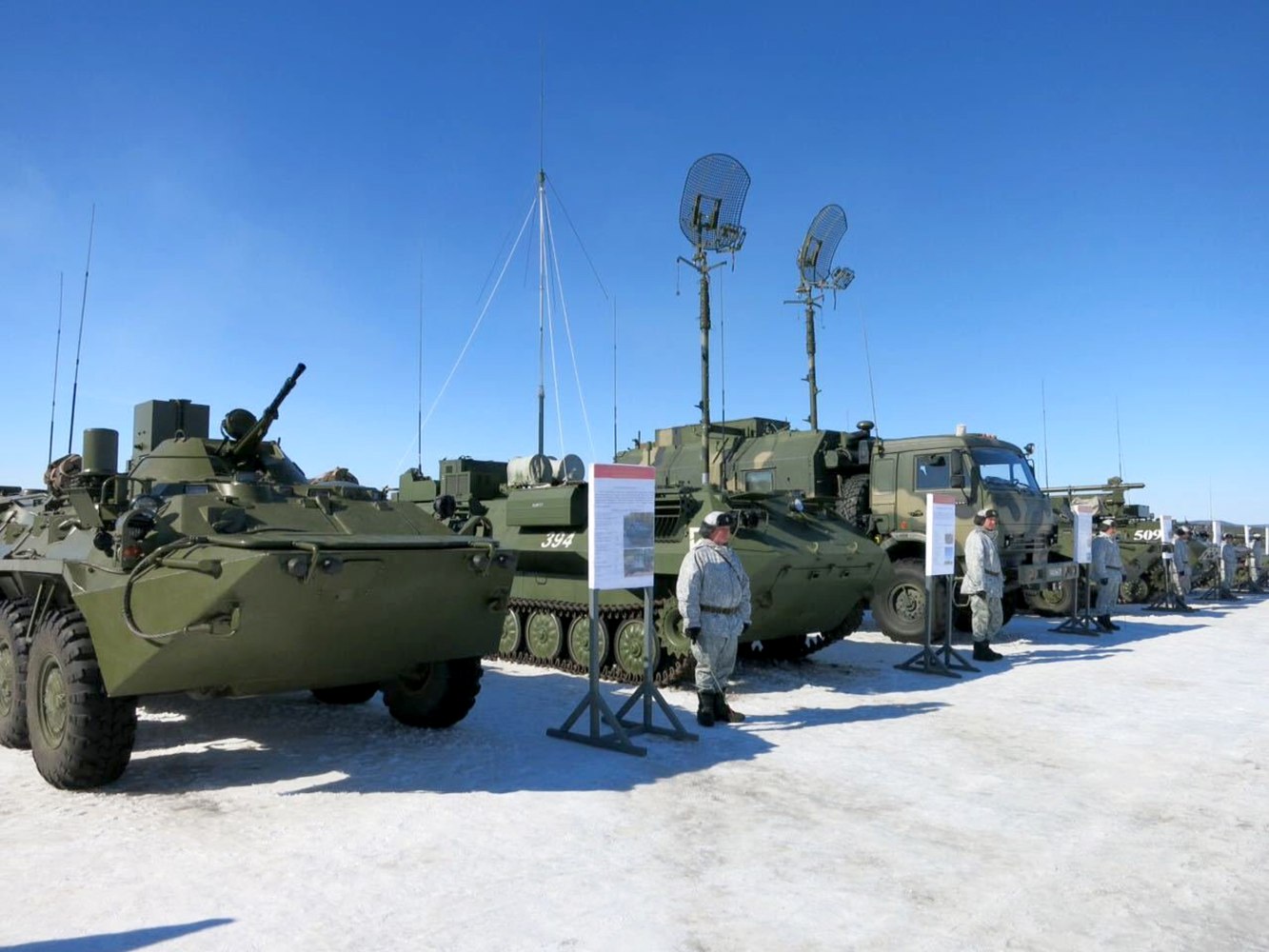Russia's Military Buildup: What Concerns Europe?

Table of Contents
Increased Russian Military Spending and Modernization
Russia's military budget has seen a substantial surge over the past decade, reflecting a determined commitment to military modernization and the development of advanced weaponry. This investment isn't merely about upgrading existing equipment; it's a strategic overhaul designed to project power and influence on a global scale. Key areas of focus include:
-
Advanced Weaponry: Russia has aggressively pursued the development and deployment of hypersonic missiles, significantly enhancing its offensive capabilities and posing a challenge to existing missile defense systems. Furthermore, modernization of its nuclear arsenal continues, adding to the overall strategic threat.
-
Cyber Warfare and Information Operations: Significant investments have been made in building robust cyber warfare capabilities and sophisticated information operations. These tools are used not just for offensive purposes but also to undermine the stability of adversarial nations and influence public opinion.
-
Conventional Military Forces: Russia has focused on enhancing its conventional military forces, improving training, and increasing the readiness of its ground troops, navy, and air force. This includes upgrades to tanks, armored vehicles, and fighter jets.
-
Naval Power Projection: Russia is strengthening its naval presence, particularly in the Baltic and Black Seas, which are strategically vital for its interests. This involves constructing new warships, modernizing existing fleets, and expanding its naval bases.
Geopolitical Implications and Shifting Power Dynamics
The implications of Russia's military buildup extend far beyond its borders, significantly impacting the geopolitical landscape and creating a climate of heightened tension.
-
NATO and Eastern Europe: The increased military activity has exacerbated tensions with NATO and its Eastern European members, particularly those sharing a border with Russia. This has led to a renewed focus on collective defense and deterrence strategies.
-
Security of Bordering Countries: Countries like Ukraine and the Baltic States face increased security risks due to Russia's military expansion. The ongoing conflict in Ukraine serves as a stark example of the potential consequences of this buildup.
-
Potential for Conflict Escalation: The risk of further escalation of existing conflicts, as well as the potential for new conflicts, is a significant concern. The unpredictable nature of Russia's actions adds to the uncertainty and instability in the region.
-
Arms Race Concerns: The significant increase in Russian military spending raises concerns about a potential arms race in Europe, with other nations feeling compelled to increase their own defense budgets in response.
Europe's Response to Russia's Military Buildup
Faced with Russia's expanding military capabilities, Europe and its allies have responded with a range of measures aimed at deterring aggression and maintaining regional stability.
-
Increased Defense Spending: NATO members have, in many cases, increased their defense spending in response to the perceived threat, though this remains uneven across member states.
-
Strengthened Military Alliances: Military cooperation and alliances within the EU and NATO have been reinforced, emphasizing collective defense and joint exercises.
-
Sanctions against Russia: Various sanctions have been imposed against Russia in response to its military actions and aggressive foreign policy, though their effectiveness remains a subject of debate.
-
Diplomatic Efforts: Diplomatic channels remain open, although progress in de-escalating tensions has been limited. These efforts are often hampered by a lack of trust and the ongoing conflicts.
-
Cyber Security and Defense: Greater emphasis is being placed on improving cyber security and defending against information warfare, recognizing Russia's increasing use of these tactics.
The Role of Information Warfare and Disinformation
Russia's military buildup is complemented by a sophisticated strategy of information warfare, using disinformation campaigns, propaganda, and cyberattacks to undermine Western institutions and influence public opinion. These hybrid warfare tactics are designed to sow discord, create confusion, and weaken the resolve of its adversaries. Countering this sophisticated form of warfare requires a multifaceted approach that includes media literacy initiatives, improved cybersecurity infrastructure, and international cooperation.
Conclusion
Russia's military expansion presents a significant and ongoing challenge to European security. The increased military spending, modernization efforts, and aggressive geopolitical posturing have created a climate of instability and heightened tension. The potential for conflict escalation and the use of hybrid warfare tactics underscore the gravity of the situation. Europe's response, while multifaceted, requires continued vigilance, strengthened cooperation amongst allies, and a sustained commitment to deterrence. Staying informed about Russia's military activities and their implications for European security is crucial. We must continue to analyze and discuss Russia's military buildup and its ramifications to ensure a secure and stable future for Europe.

Featured Posts
-
 Antlaq Fealyat Fn Abwzby Fy 19 Nwfmbr
Apr 29, 2025
Antlaq Fealyat Fn Abwzby Fy 19 Nwfmbr
Apr 29, 2025 -
 Analizuojame M Ivaskeviciaus Isvaryma Spektaklis Filmas Ir Ju Reiksme
Apr 29, 2025
Analizuojame M Ivaskeviciaus Isvaryma Spektaklis Filmas Ir Ju Reiksme
Apr 29, 2025 -
 Porsche Cayenne Ev 2026 Leaked Spy Shots And Speculation
Apr 29, 2025
Porsche Cayenne Ev 2026 Leaked Spy Shots And Speculation
Apr 29, 2025 -
 Bundesliga Abstiegskampf Investor Von Klagenfurt Will Trainer Austauschen Jancker Betroffen
Apr 29, 2025
Bundesliga Abstiegskampf Investor Von Klagenfurt Will Trainer Austauschen Jancker Betroffen
Apr 29, 2025 -
 Uk Courts Definition Of Woman Impact On Sex Based Rights And Transgender Issues
Apr 29, 2025
Uk Courts Definition Of Woman Impact On Sex Based Rights And Transgender Issues
Apr 29, 2025
